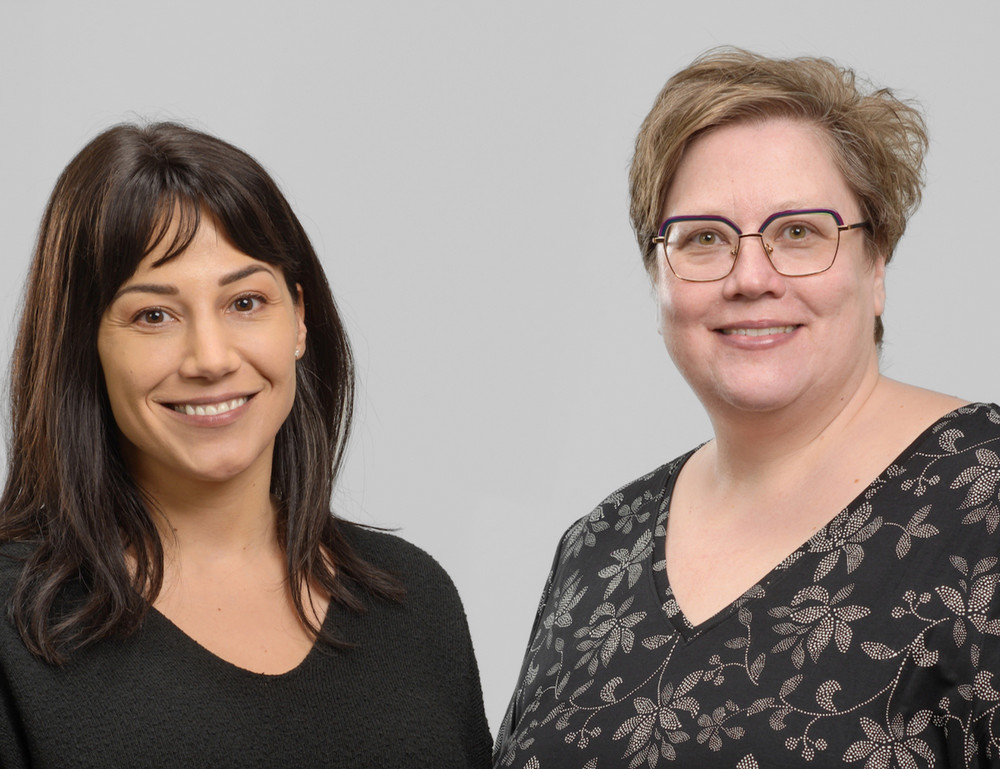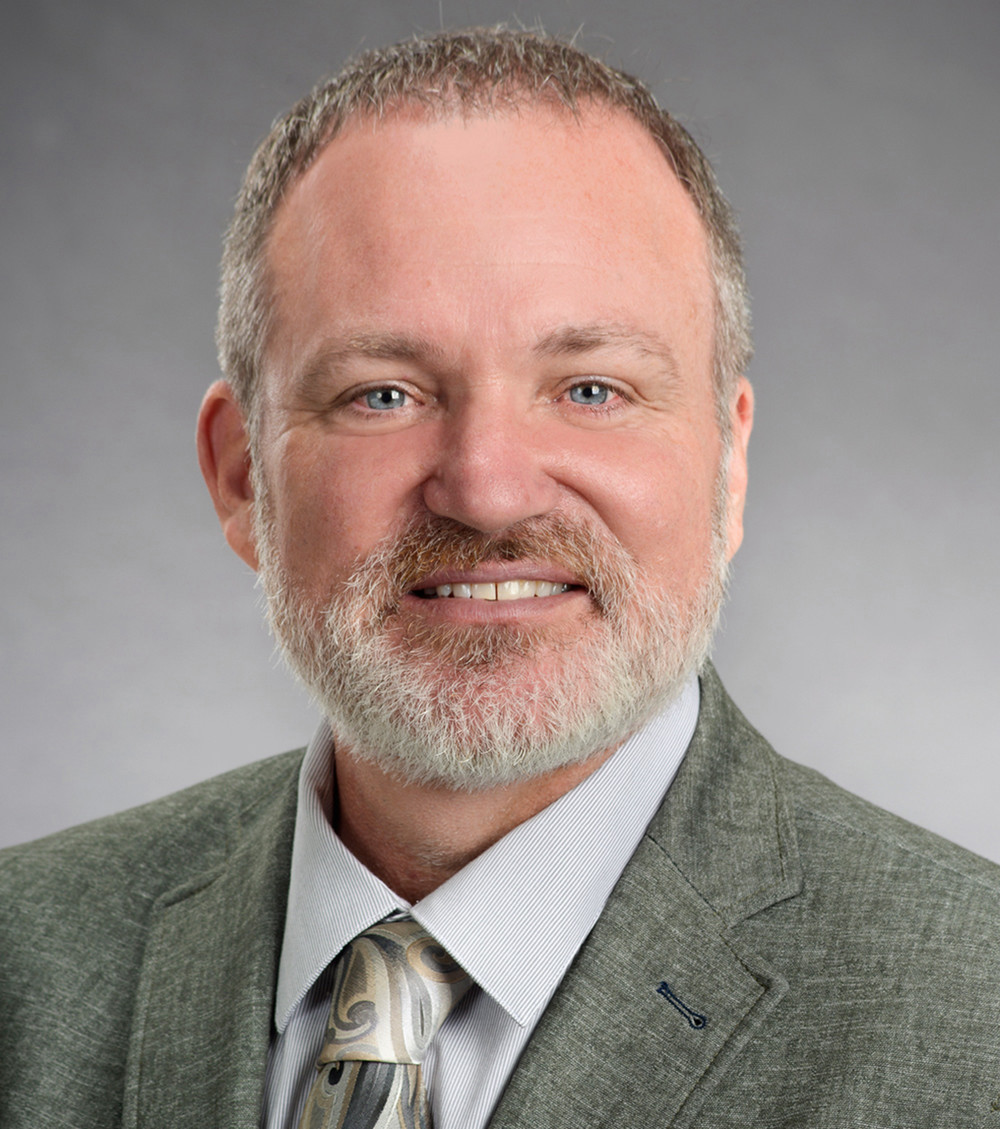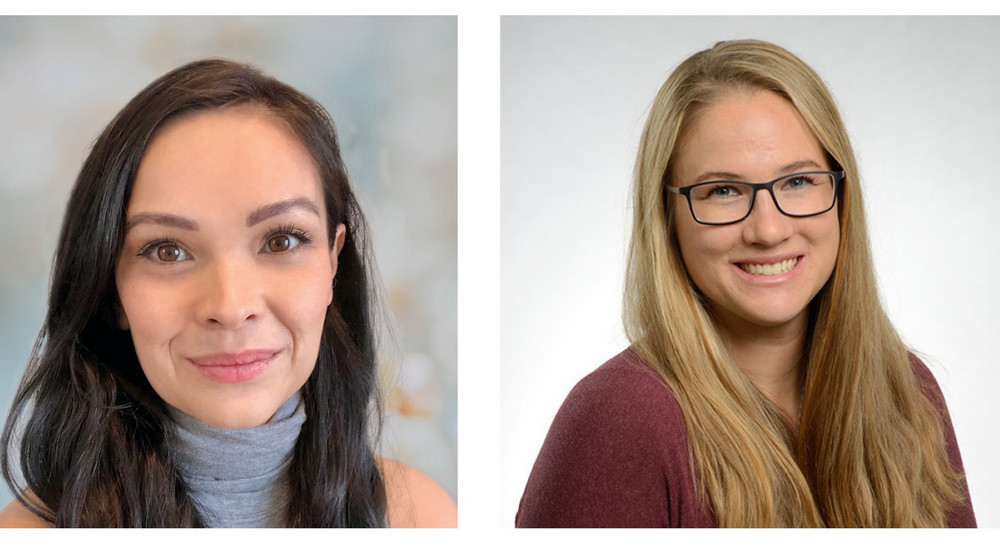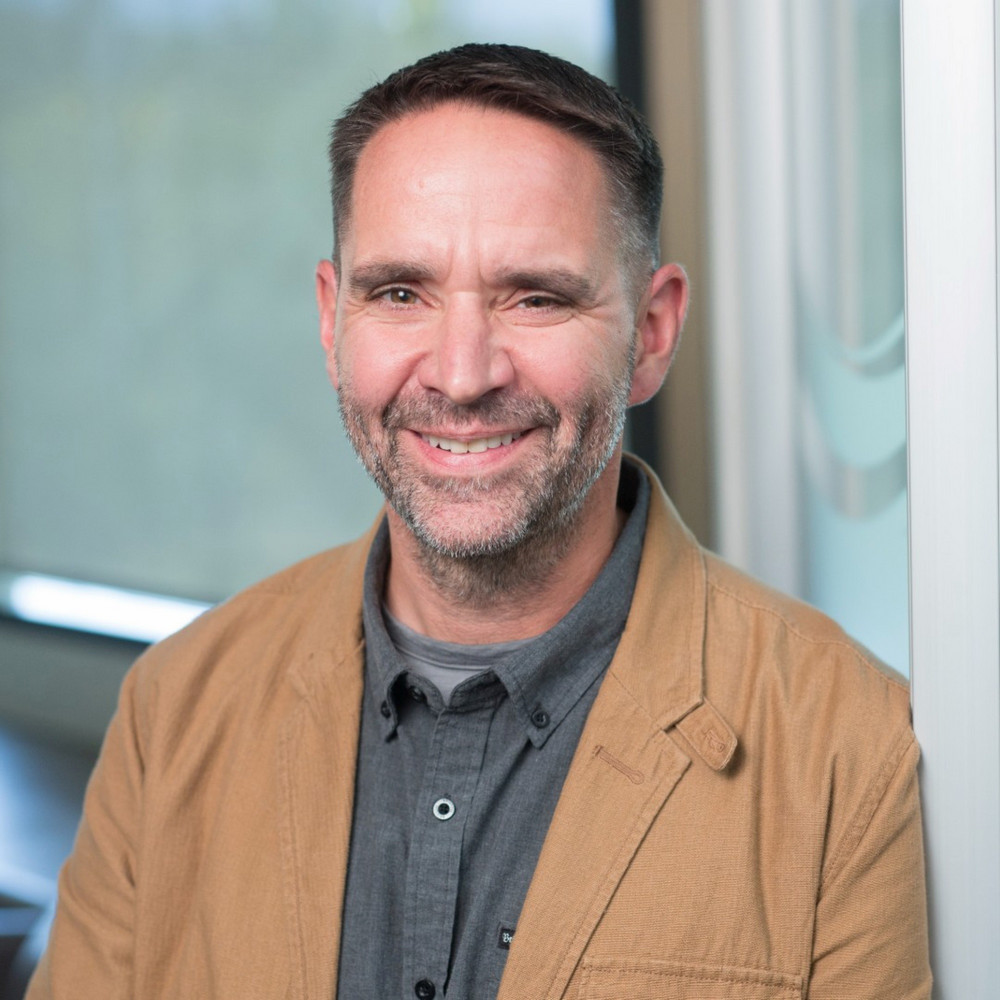As in nature, it’s not always the strongest or even the most knowledgeable who thrive. It’s those who learn to adapt. As artificial intelligence (AI) quickly reshapes the world around us, the question for educators isn’t whether AI belongs in the classroom, but how it can be used to help students think critically, learn in new ways, and prepare for a rapidly changing future.
This year, six University of Regina faculty members earned recognition as President’s Teaching and Learning Scholars for their work exploring and integrating generative AI in education.
Led by the Centre for Teaching and Learning (CTL), the President’s Teaching and Learning Scholars Program supports faculty who demonstrate a strong commitment to innovation and excellence in teaching. The 2025 Scholars were celebrated at the President’s Celebration of Teaching, Research, and Service Achievement Awards at Darke Hall on November 19, 2025.
Learn more about the scholars and their work below.
Dr. Jaime Mantesso and Dr. Shauna Davies

Dr. Jaime Mantesso, assistant professor, and Dr. Shauna Davies, associate professor in the Faculty of Nursing, are co-leading TEAiL Explore, a project that integrates generative AI into nursing education to help prepare future healthcare professionals for an evolving digital landscape.
Research is a core part of a nurse’s role in providing safe, competent patient care, and that work is evolving alongside advances in AI. Nurses rely on evidence-based resources to make clinical decisions and analyze research findings to guide best practices. With the rapid growth of generative AI, many educators and clinicians are asking how students will learn to use these tools responsibly in settings where research must be completed before providing patient care.
To help students navigate this shift, Mantesso and Davies are building AI literacy alongside traditional research literacy early in the Saskatchewan Collaborative Bachelor of Science in Nursing program. They are adapting a key assignment in a second-year undergraduate research course to introduce GenAI tools such as Copilot.
“Shauna and I believe that incorporating generative AI into the research course will capture their attention and promote their future nursing success. This is a hands-on, reflexive assignment that provides practical skills like prompt building but also really ensures students understand the pitfalls and ethical concerns associated with AI use, especially in health care,” says Mantesso.
They want to ensure that students entering the workforce do so with confidence and the ability to continue contributing their knowledge in meaningful ways.
“Perhaps the most meaningful impact will be a health care system employed with nurses who are able to understand the benefits, limitations, and ethical responsibilities of gen AI for delivering safe, competent patient care,” adds Davies.
Dr. Scott A. Thompson

Dr. Scott A. Thompson, professor in the Faculty of Education and recipient of the 2009 U of R Alumni Association Award for Excellence in Teaching, is exploring how generative AI can make inclusive classrooms more responsive and equitable.
His work explores how generative AI may help create tools to better equip teachers to tailor resources to particular students. He is providing opportunities to do so in their own classrooms in reading and math. Thompson also plans to experiment with virtual math manipulatives (digital versions of hands-on learning aids) and AI-generated songs or chants to help students remember key concepts. The goal is to turn proven strategies into everyday tools while building students’ critical thinking and digital literacy for a changing world.
“As an educator, I am committed to fostering a dynamic, student-centered environment where every learner has the opportunity to thrive. I believe that when used thoughtfully, AI can empower students, enhance engagement, and individualize the learning experience in ways previously unimaginable—all of which has implication for inclusive education,” says Thompson.
Dr. Susan Yamamoto and Dr. Kaila Bruer

Dr. Susan Yamamoto, assistant professor at Campion College, and Dr. Kaila Bruer, associate professor and Experimental and Applied Psychology graduate program coordinator at Luther College, both in the Faculty of Arts, are reimagining forensic psychology education through AI-driven interactive roleplay.
Their project uses generative AI to create a criminal profiling simulation that builds on traditional role-playing exercises in forensic psychology courses. Students will interact with AI agents such as suspects and witnesses to practise investigative and profiling skills in lifelike scenarios that evolve based on their questions and decisions. The goal is to make active learning scalable and accessible for students, creating engaging and personalized learning experiences that support success across different classroom settings.
“We aim to equip students with the critical, adaptable skills necessary for their professional success, especially in the justice system. Generative AI doesn’t take away from what great teaching can do; it can help energize innovation. Our approach is to integrate this technology to empower students, giving them greater independence and autonomy over their learning,” says Yamamoto.
Dr. Justin Longo

Dr. Justin Longo, associate professor in the Johnson Shoyama Graduate School of Public Policy (JSGS) and director of the Digital Governance Lab at the U of R, is exploring an innovative approach to teaching briefing note writing in graduate public administration.
Briefing notes play a crucial role in governmental decision-making by transforming complex information into clear, actionable recommendations. Today, generative AI tools such as ChatGPT can perform many of these same tasks, raising important questions about how they fit into public sector training and education. Through his course, Longo is examining whether the use of generative AI genuinely develops students’ independent briefing note writing skills or simply enables them to produce better documents in the short term at the expense of long-term growth.
“Rather than resisting the integration of AI tools, I am working to harness their potential while ensuring they enhance rather than replace student learning,” says Longo.
Through this research, Longo aims to help students prepare for their future, not his past.
Additional awards
The Teaching and Learning Scholars were recognized at the President’s Celebration of Teaching, Research, and Service Achievement Awards at Darke Hall on November 19, 2025, alongside other distinguished award recipients. View the full list below.
Creative Initiative Awards: Angela Leader; Emily McNair
Safety Leadership Award (Non-Academic): Eric Exner
Team Innovation Award: Health & Safety Team (Kristin Agopsowicz, Jae Bean, Shaun Dovell, Arden Geiger, Ryan King, Emily Pilon, Curtis Senger and Sarah Wilke)
University Spirit Award: David Boys
Service Excellence Awards: Anne Lauf; Cheryl Risling
President’s Award for Teaching Excellence: Brent Ghiglione
Provost’s Award for Innovation in Teaching: Gale Russell
New Faculty Teaching Awards of Recognition: Lexie Heit; Sarah Ilori
Award of Excellence in Experiential Learning: Emily McNair
Awards of Excellence in Public Education and Outreach: Samantha Lawler; Vanessa Mathews
President’s Teaching and Learning Scholars: Justin Longo; Jaime Mantesso; Shauna Davies; Scott A. Thompson; Susan Yamamoto; Kaila Bruer
Award for Outstanding Graduate Supervision: Kelvin Ng
Graduate Teaching Assistant Award: Taneicha S. Littlejohn Robinson
Graduate Student Excellence Award (Innovation and Research): Sharmin Jahan Mim
Graduate Student Community Engagement Award: Whitney Blaisdell
3M Teaching Fellowship: Taiwo Afolabi
3M Student Fellowship: Mohammad Akib Hossain
Royal Society of Canada Fellowship: Nick Carleton
Royal Society of Canada Fellowship: Thomas Hadjistavropoulos
Looking to advance your teaching or share your innovation? See the awards and opportunities offered through the Centre for Teaching and Learning.
About the University of Regina
At the University of Regina, we believe the best way to learn is through access to world-class professors, research, and experiential learning. We are committed to the health and well-being of our more than 16,600 students and support a dynamic research community focused on evidence-based solutions to today’s most pressing challenges. Located on Treaties 4 and 6—the territories of the nêhiyawak, Anihšināpēk, Dakota, Lakota, and Nakoda peoples, and the homeland of the Michif/Métis nation —we honour our ongoing relationships with Indigenous communities and remain committed to the path of reconciliation. Our vibrant alumni community is more than 95,000 strong and enriching communities in Saskatchewan and around the globe.
Let’s go far, together.
